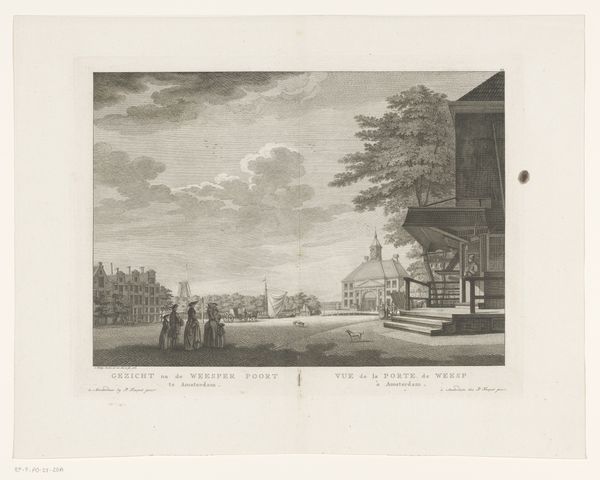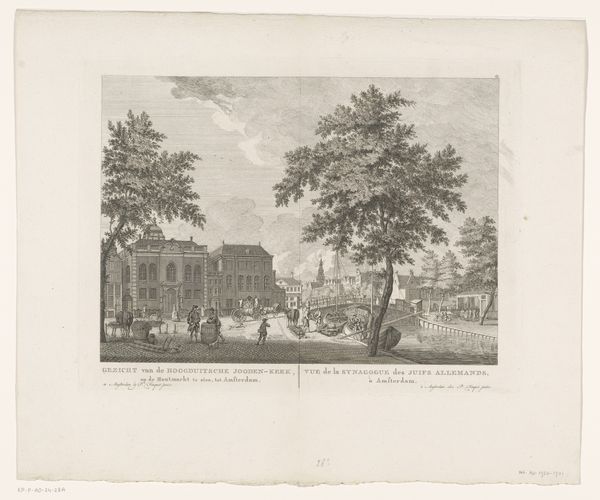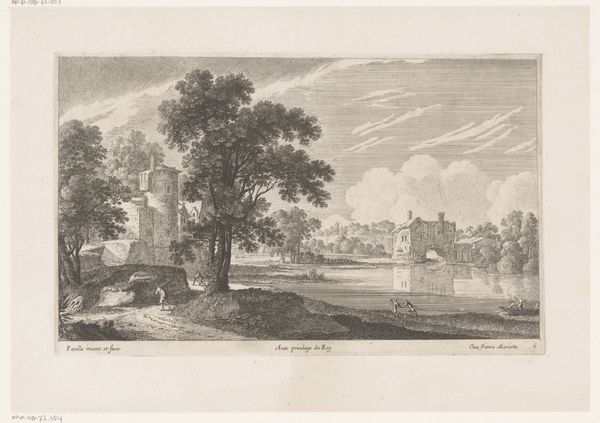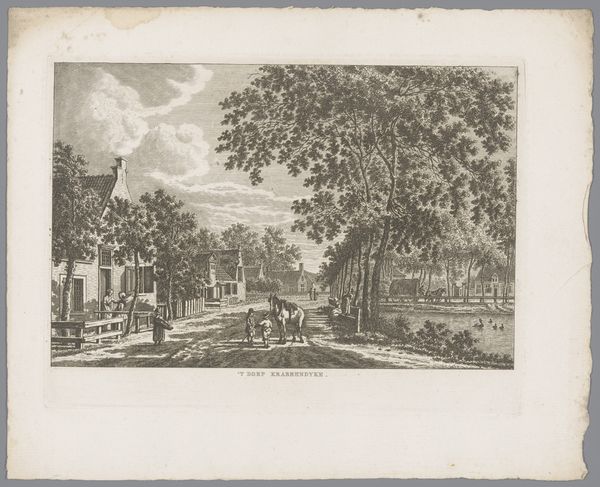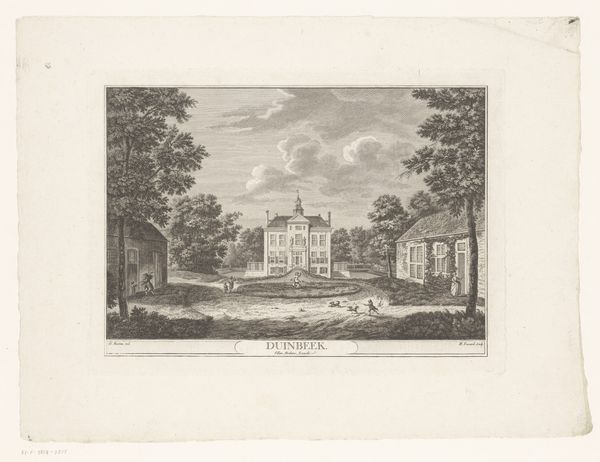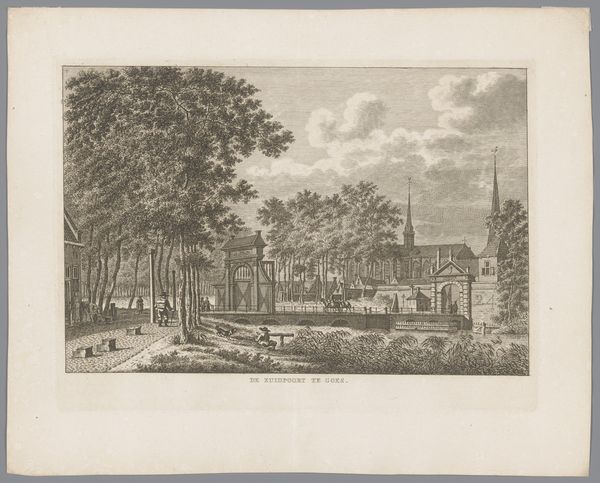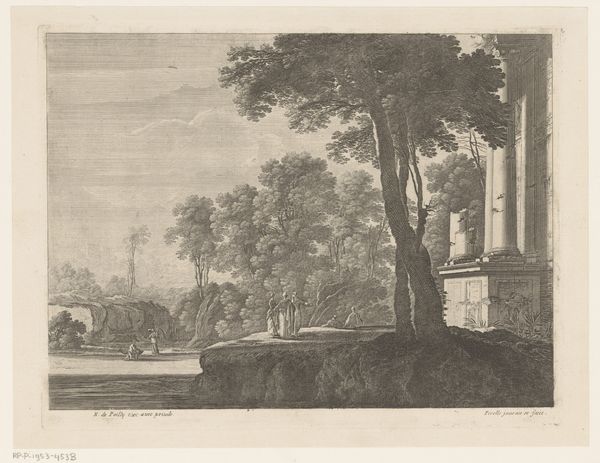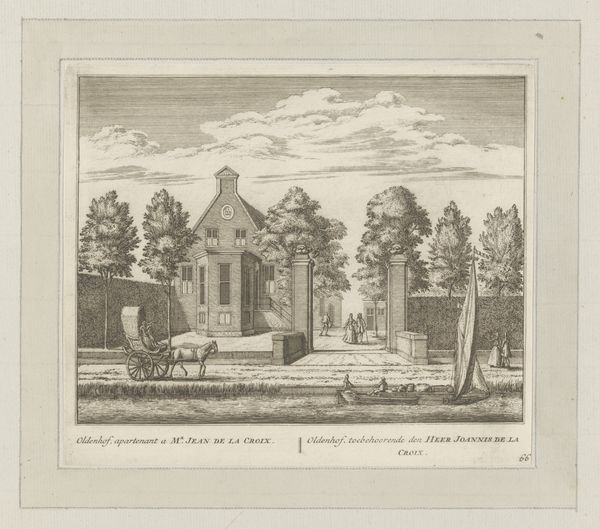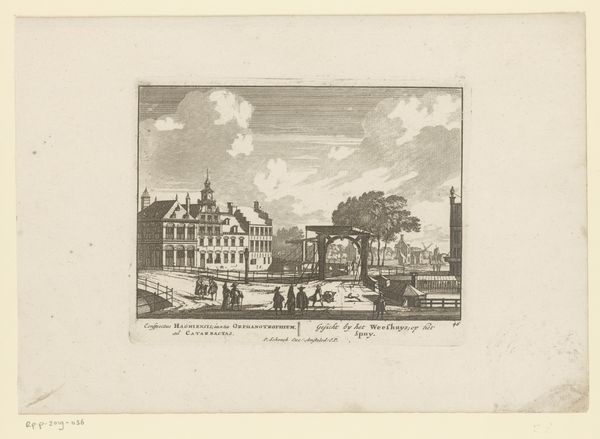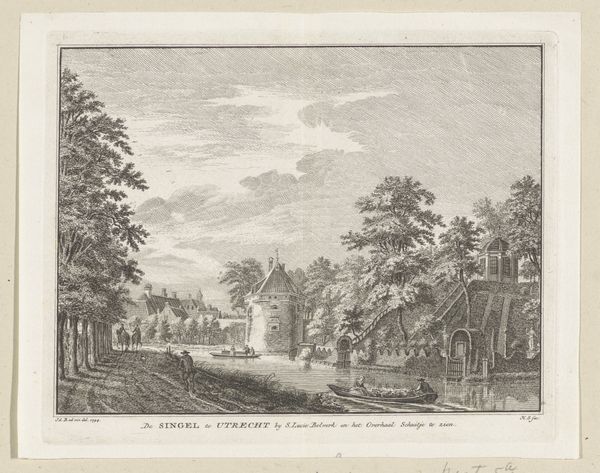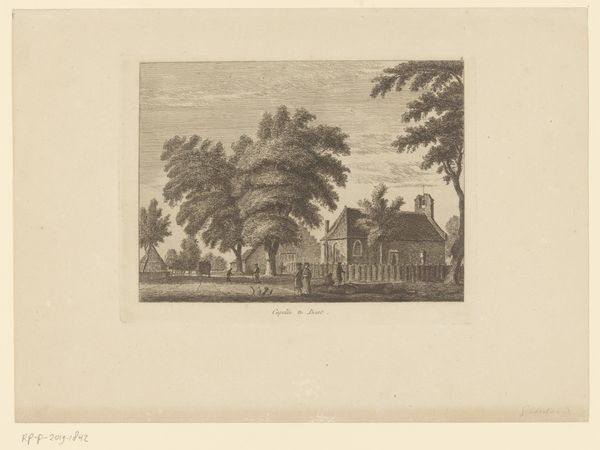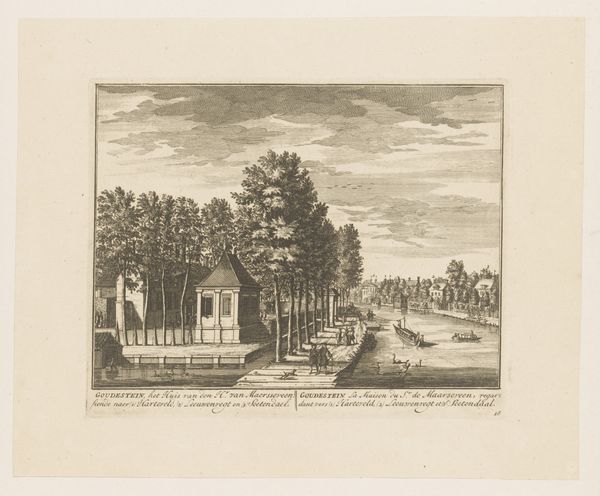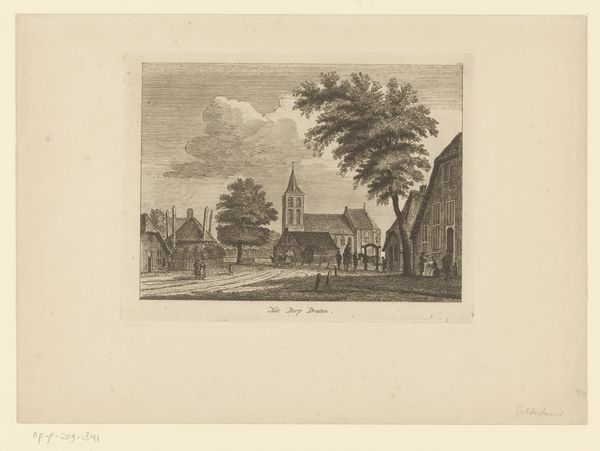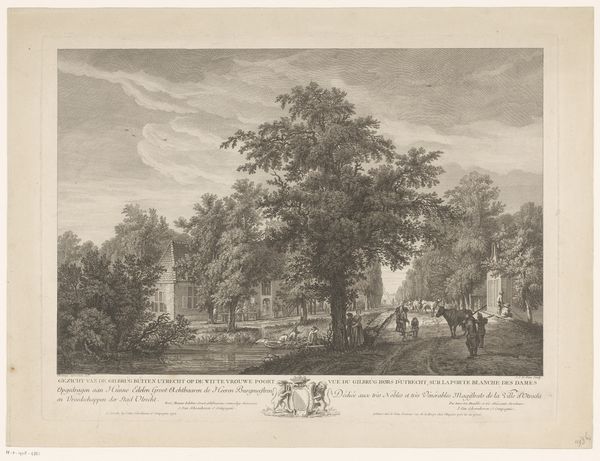
print, etching
#
neoclacissism
# print
#
etching
#
landscape
#
cityscape
Dimensions: height 286 mm, width 373 mm
Copyright: Rijks Museum: Open Domain
Caspar Jacobsz. Philips created this print of the Muiderpoort in Amsterdam in the eighteenth century. It invites us to consider the social and institutional context of the Dutch Golden Age and its aftermath. The print depicts not just a physical structure, but also the economic activities and social relations that defined Amsterdam. We see figures engaged in the timber trade, highlighting the city's dependence on natural resources and maritime commerce. The Muiderpoort itself was a site of trade, taxation and regulation, reflecting the power of Amsterdam’s municipal government. To understand this print fully, we might consult archival records, trade statistics, and urban histories. This would help us to situate Philips’s image within broader debates about urban development, economic policy, and civic identity in the Dutch Republic. By attending to the historical context, we can appreciate the complex meanings embedded in this seemingly simple depiction of a city gate.
Comments
No comments
Be the first to comment and join the conversation on the ultimate creative platform.
